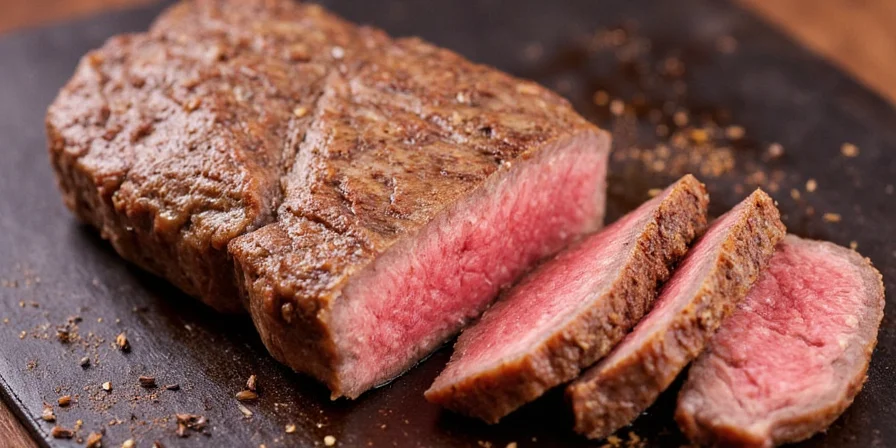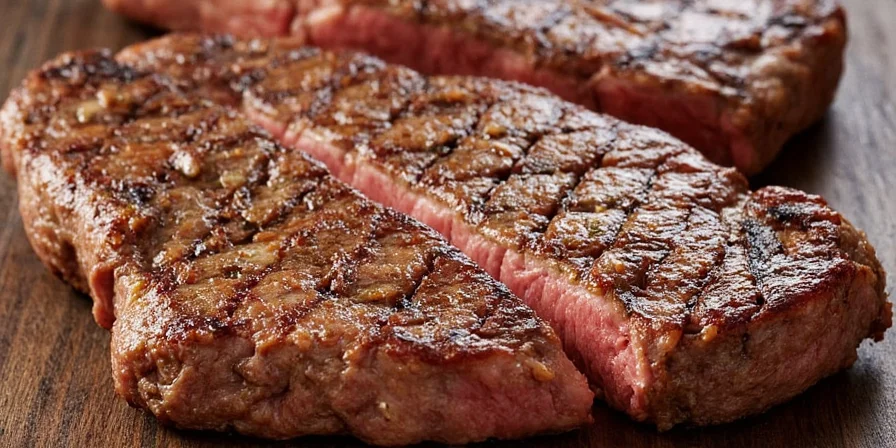Mastering the Art of Seasoning Steak: A Spice Lover’s Guide

There's something magical about the moment you take that first bite of a perfectly seasoned steak. It's not just about the cut, the doneness, or the sauce—it's about the spices. And if you're like me, you know that the right blend of salt, pepper, and a few other secret ingredients can elevate a simple piece of meat to a culinary masterpiece. In this post, we're diving deep into the world of steak seasoning, focusing on one of the most beloved spices in the kitchen: black pepper. We'll explore how to store it properly, how to use it effectively, and why it’s a staple in any steak lover’s pantry. Let’s get spiced up!
The Spice That Makes Steak Sing: Black Pepper
Black pepper is not just a seasoning—it's a flavor enhancer, a texture booster, and a culinary chameleon. When it comes to steak, black pepper is the unsung hero of the plate. But to get the most out of it, you need to know how to store it and use it like a pro.
Why Black Pepper Works So Well with Steak
- Enhances Umami: Black pepper contains compounds that boost the umami flavor in meat, making it more savory and satisfying.
- Boosts Aroma: The volatile oils in black pepper release a rich, pungent aroma that complements the natural beefy scent of steak.
- Helps with Maillard Reaction: Pepper can help intensify the browning and caramelization of the steak's surface, leading to a better crust.
Pro Tips for Storing Black Pepper Like a Chef
Storing spices correctly is the first step to getting the most out of them. Black pepper, in particular, is sensitive to heat, light, and moisture. Here are a few hacks to keep it fresh and flavorful for as long as possible:
1. Keep It Cool and Dark
Heat and light are the enemies of flavor. Store your black pepper in a cool, dark place—ideally a pantry or a spice cabinet away from the stove. Exposure to heat can cause the oils in the pepper to evaporate, making it less potent over time.
2. Use Airtight Containers
Always store black pepper in an airtight container. This prevents moisture and air from getting in, which can cause clumping and loss of potency. A glass jar with a tight lid is a great option.
3. Grind It Fresh, Not in Advance
Pre-ground pepper loses its potency much faster than whole peppercorns. If you're using a pepper mill, store the whole peppercorns inside the mill and grind them just before using. This ensures maximum flavor and aroma.
4. Avoid Refrigeration Unless Necessary
While refrigeration can help preserve spice for a longer time, it's not ideal for black pepper. The moisture in the fridge can cause the pepper to clump or become damp. If you're in a hot climate and need to store it for more than a few months, a cool, dry place is better.
5. Label and Date Your Spices
Even the best spices can go bad if left unused for too long. Label your containers with the date you stored them, and replace them every 6-12 months for optimal flavor.
How to Use Black Pepper on Steak: The Right Way
Now that we know how to store black pepper, let's talk about how to use it. Black pepper is a versatile spice, but when it comes to steak, it's all about balance and timing.
1. Season Just Before Cooking
Never season your steak in advance. Salt and pepper can draw moisture out of the meat, leading to a less juicy steak. Instead, season your steak right before searing or grilling. This ensures that the flavor is locked in during the cooking process.
2. Use a Heavy Hand with Pepper
Black pepper should be used generously on steak. A good rule of thumb is to use about 1-2 teaspoons of freshly ground black pepper per pound of steak. This might sound like a lot, but it's the difference between a bland and a flavorful steak.
3. Combine with Other Spices for Depth
While black pepper is a star on its own, it pairs beautifully with other spices like garlic, rosemary, thyme, and even a touch of paprika. Try using a mix of salt, black pepper, garlic powder, and dried herbs for a more complex flavor profile.
4. Don’t Overpower the Meat
Black pepper is bold, but it should enhance the steak, not mask its natural flavor. Use it in moderation and let the meat shine through. A little goes a long way, especially with high-quality cuts.
Black Pepper vs. Other Spices for Steak: A Flavor Comparison
While black pepper is a go-to for steak, it’s not the only option. Let's compare it with a few other popular steak seasonings to see where black pepper stands out:
| Spice | Flavor Profile | Best For | Storage Tips |
|---|---|---|---|
| Black Pepper | Pungent, earthy, slightly spicy | Enhancing umami, boosting aroma | Store in airtight container, cool and dark |
| Salt | Savory, enhances natural flavors | Brining, seasoning, drawing out moisture | Store in airtight container, away from moisture |
| Rosemary | Piney, aromatic, herbal | Adding freshness and depth | Store in airtight container, refrigerated if not used quickly |
| Garlic | Pungent, umami-rich, slightly sweet | Adding depth and richness | Store in airtight container, refrigerated or frozen |
| Thyme | Earthy, floral, slightly minty | Adding a subtle herbal note | Store in airtight container, refrigerated or in a cool, dark place |
The Science Behind Black Pepper and Steak
Black pepper is more than just a flavor booster—it’s a scientific marvel in the kitchen. The compound responsible for its signature kick is called pipericin, which gives black pepper its spicy, pungent flavor. When applied to steak, it interacts with the proteins in the meat, enhancing the Maillard reaction, which is the chemical process that gives steak its delicious browned crust.
Additionally, the volatile oils in black pepper contribute to the aroma of the steak, making it more appealing both visually and olfactorily. This is why a well-seasoned steak is not only more flavorful but also more aromatic, making it an irresistible dish for any steak lover.
Common Mistakes to Avoid When Using Black Pepper on Steak
Even the best spices can be misused. Here are a few common mistakes to avoid when seasoning your steak with black pepper:
- Using Too Little Pepper: Black pepper is bold, and using too little can make your steak taste flat and under-seasoned.
- Overusing Pepper: While black pepper enhances flavor, too much can overwhelm the natural taste of the steak.
- Using Old Pepper: Old or improperly stored black pepper loses its potency and can leave your steak tasting stale or bitter.
- Seasoning Too Early: As mentioned earlier, seasoning too far in advance can cause the meat to lose moisture and become dry.
Final Thoughts: Elevate Your Steak Game with the Right Spices
Black pepper is one of the most underrated yet essential spices in the world of steak seasoning. When used properly, it can transform a simple cut of meat into a flavor-packed masterpiece. By storing it correctly and using it with care, you can ensure that every steak you cook is not only juicy and tender but also bursting with flavor.
So next time you're in the kitchen, remember: a little black pepper goes a long way. And if you're looking to take your steak game to the next level, don't forget to experiment with other spices like garlic, rosemary, and thyme. The possibilities are endless—and your taste buds will thank you.
Now go forth, season like a pro, and savor every bite of that perfectly seasoned steak.

Happy cooking, and may your steaks always be seasoned to perfection!










 浙公网安备
33010002000092号
浙公网安备
33010002000092号 浙B2-20120091-4
浙B2-20120091-4